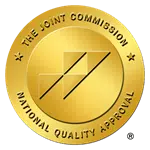Self-medication refers to the use of substances to cope with the symptoms of PTSD.
It is important to recognize that self-medication is a maladaptive coping mechanism and does not address the underlying issues of PTSD. Seeking professional help and engaging in evidence-based treatments can provide individuals with healthier and more effective ways to manage their symptoms and overcome addiction.

How Self-medication Can Worsen Symptoms of PTSD and Addiction
Masking Symptoms
Substance use can temporarily mask the distressing symptoms of PTSD, such as anxiety, intrusive thoughts, and nightmares. However, this relief is short-lived and does not address the underlying causes of the symptoms. By relying on substances to manage symptoms, individuals may avoid seeking proper treatment and miss out on opportunities for healing and recovery.
Increased Dependence
Self-medication can lead to an increased dependence on substances. Over time, individuals may develop a tolerance to the substances they are using, requiring larger amounts to achieve the desired effects. This can lead to a cycle of escalating substance use and dependence, making it even more challenging to break free from addiction.
Negative Reinforcement
When substances are used to cope with PTSD symptoms, the brain associates relief from distress with the act of substance use. This creates a negative reinforcement loop, where individuals are more likely to turn to substances whenever they experience PTSD symptoms. This can reinforce the addictive behavior and make it harder to quit or reduce substance use.
Increased Emotional Dysregulation
Substance use can disrupt the brain’s natural balance of chemicals and neurotransmitters, leading to emotional dysregulation. This can exacerbate the emotional symptoms of PTSD, such as mood swings, irritability, and anger. It can also make it more challenging for individuals to effectively manage their emotions and cope with stressors in a healthy way.
Interference with Treatment
Self-medication can interfere with the effectiveness of PTSD treatment. Substance use can impair cognitive functioning, memory, and motivation, making it harder for individuals to engage in therapy and adhere to treatment plans. It can also interfere with the efficacy of certain medications used to treat PTSD, reducing their effectiveness.
Increased Risk of Trauma Exposure
Substance use can increase the risk of exposure to further traumatic events. Impaired judgment and decision-making under the influence of substances can lead individuals to engage in risky behaviors or find themselves in dangerous situations. These additional traumas can further exacerbate PTSD symptoms and complicate the recovery process.
Psychiatric Complications
PTSD often co-occurs with other mental health disorders, such as depression, anxiety, and substance use disorders. Self-medication can exacerbate the symptoms of these comorbid conditions, leading to a more complex and challenging clinical picture. It can make it harder for healthcare professionals to accurately diagnose and treat the underlying issues.
Escalation of Substance Use
Self-medication can lead to a progressive escalation in substance use. Initially, individuals may use substances sporadically to alleviate symptoms. However, as tolerance develops and the desired effects diminish, they may increase the frequency and quantity of substance use. This can result in a dangerous cycle of dependence and addiction.
Impaired Coping Skills
By relying on substances as a coping mechanism, individuals with PTSD may fail to develop healthy coping skills necessary for long-term recovery. Substance use becomes a crutch, preventing individuals from learning and practicing healthier ways to manage stress, regulate emotions, and cope with triggers. This can hinder the progress of therapy and hinder overall healing.
Decreased Emotional Processing
PTSD involves difficulty processing and integrating traumatic experiences. Self-medication can further impede this process by numbing emotions and preventing individuals from fully engaging in the therapeutic process. It can hinder the ability to explore and process traumatic memories, hindering the healing and recovery process.
Social Isolation
Substance use as a form of self-medication can contribute to social isolation and withdrawal. Individuals may prioritize substance use over maintaining healthy relationships, leading to strained interpersonal dynamics and decreased social support. This can further exacerbate feelings of loneliness, depression, and anxiety, worsening the overall symptoms of PTSD.
Health Consequences
Self-medication through substance use can have severe health consequences. Substance abuse is associated with an increased risk of physical health problems, such as liver damage, cardiovascular issues, respiratory problems, and an overall decline in physical well-being. These health issues can further worsen the symptoms of PTSD and undermine the recovery process.
Seek Appropriate Treatment If You Have PTSD
It is crucial for individuals with PTSD and addiction to seek comprehensive treatment that addresses both conditions simultaneously. Integrated treatment approaches that incorporate evidence-based therapies, medication management, and support groups can provide individuals with the tools and resources they need to address the underlying trauma, manage symptoms, and achieve lasting recovery.
More Information
International Society for Traumatic Stress Studies. Traumatic Stress and Substance Abuse Problems
U.S. Department of Veterans Affairs. PTSD and Substance Abuse in Veterans.
Della’Aquilla, A. and D. Berle. 2023. Predictors of alcohol and substance use among people with post-traumatic stress disorder (PTSD): findings from the NESARC-III study. Open access Published: 03 May 2023 Volume 58, pages 1509–1522, (2023)


















